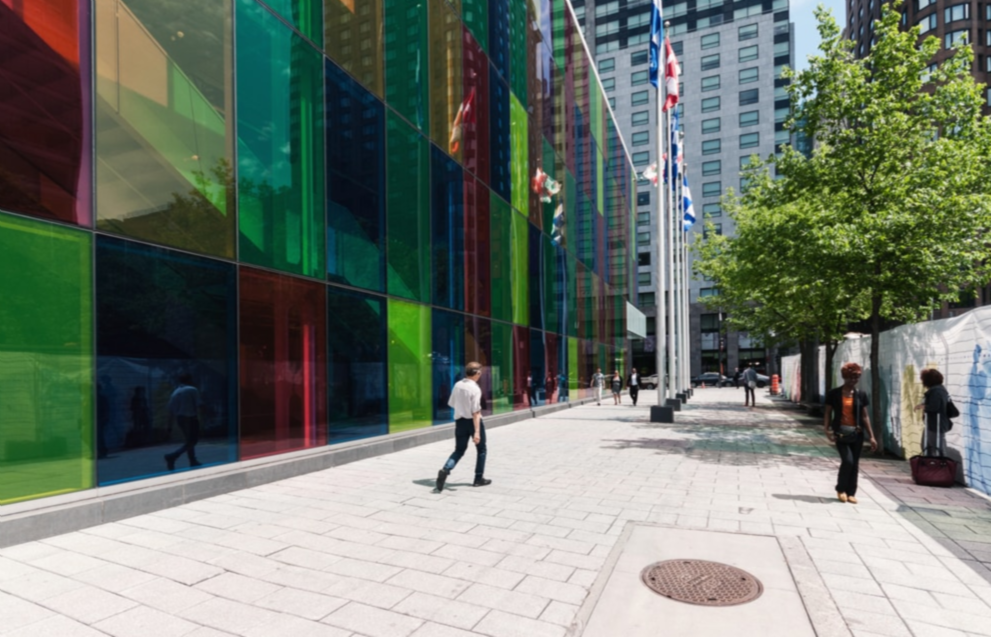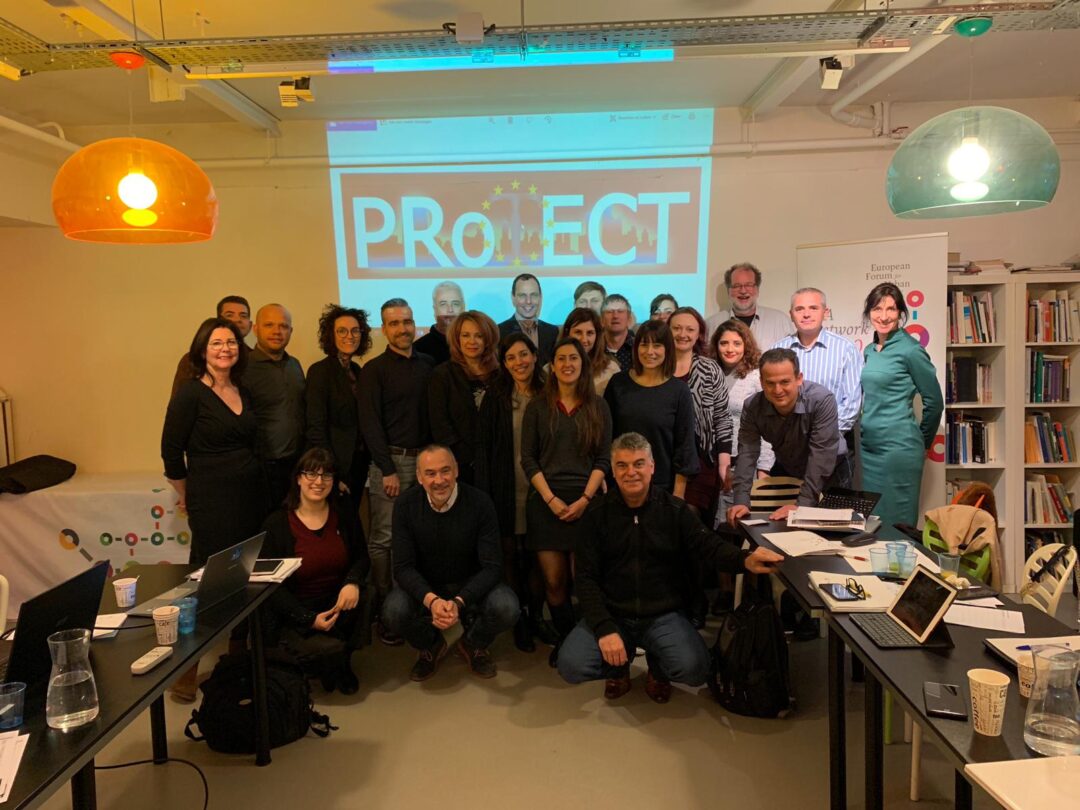Paris, France, October 2020 – A partner in the PACTESUR project, Efus is coordinating the Publication Series, a s collection of articles, interviews and guides written by the project’s Associated Cities and the EAC with the aim of contributing to the European debate on the protection of public spaces. In this first article, Mariusz Czepczyński explores the security challenges in a post-lockdown urban environment.
Covid-19, or more accurately the fear of being infected by an easily transmitted and potentially fatal virus, has dramatically changed our lives, economies, relations, spaces and feelings of anxiety, enjoyment and security. While the pandemic affects us all, its impact is particularly felt in cities and urban public spaces. Around the world, city streets, squares and green areas are deserted. Crowds and traffic have disappeared. Tourists have vanished and most residents stay at home. Police and other services patrol open spaces walking, cycling, horse-riding, using cars, drones, robots, CCTV and smartphone applications. Empty streets with few distanced people wearing face masks have transformed our public spaces into something altogether quite surreal, even dystopian.
At the same time, public spaces have become more controlled while physical distancing has emptied urban nodes – train stations, airports, underground, trams, boulevards, squares, and office buildings. The extremist threat as we knew it has been for a time minimized. Public security has now a new hitherto seldom recognised facet on top of threats to the environment, terrorism, criminality and accidents: public health, which is now challenged by both unintentional and potentially premeditated spread (i.e. people deliberately coughing or sneezing on other people). Our cities – as social and material ensembles – have proved hardly resilient to this unexpected threat. In many cities around Europe, the coronavirus crisis has exposed how fragile our public safety management systems can be.
While public life limitations are now being lifted in many European countries, local governments are facing challenges, but also opportunities, in reintroducing public life in urban public spaces in the post-Covid context. We can make a series of general recommendations for local authorities that in our view could help solve emerging problems, but also take advantage of new opportunities and facilitate more resilient urban spaces:
- Restoring trust and fighting growing xenophobia: physical distancing results in growing separateness and social distancing at the local, national and international level.
- Better coordination and cooperation between cities and other public health stakeholders: risk assessments should be conducted together with updated public safety management strategies, including public health security.
- Improved information together with reliable and direct reaction to misinformation and fake news: bio-information attacks should be confronted by new media task forces at both local and national levels.
- Reasonable but effective use of technology: as popular face recognition systems can be less effective now that the public is asked to wear a face mask, innovative solutions such as biokinetics and other smart technologies can be applied. At the same time, any authoritarian control and anti-democratic overuse of technologies and laws shall be limited to an unquestionably compulsory minimum.
- Coherent, comprehensive revitalisation of post-Covid public spaces shall not be only focused on climate change and mobility systems, as stated already by many local authorities. The holistic transformation of urban spaces and lifestyles shall incorporate and prioritise public security issues.
Because of the requirement for isolation and social distancing, pandemics are by nature “anti-urban” and “anti-public”. This collides with the fundamentally urban desire to interact with other people, but also against the way cities and public spaces are built and designed, which is precisely to be collectively used. The biggest challenge now is therefore to build new public spaces that are at once healthier, more secure, resourceful, greener and fairer, while remaining collective, interactive, civic and par excellence urban.
About the author
 Mariusz Czepczyński is a professor at the Institute of Geography of the University of Gdansk (Poland) and a visiting professor at the University of Tubingen (Germany) and at the University of Rome Tor Vergata. He was Acting Senior Advisor to the Mayor of Gdansk between 2010 and 2019.
Mariusz Czepczyński is a professor at the Institute of Geography of the University of Gdansk (Poland) and a visiting professor at the University of Tubingen (Germany) and at the University of Rome Tor Vergata. He was Acting Senior Advisor to the Mayor of Gdansk between 2010 and 2019.
> More information on the PACTESUR project
> If you’re interested, you can contact Tatiana Morales (morales@efus.eu) or Martí Navarro Regàs (navarroregas@efus.eu)




